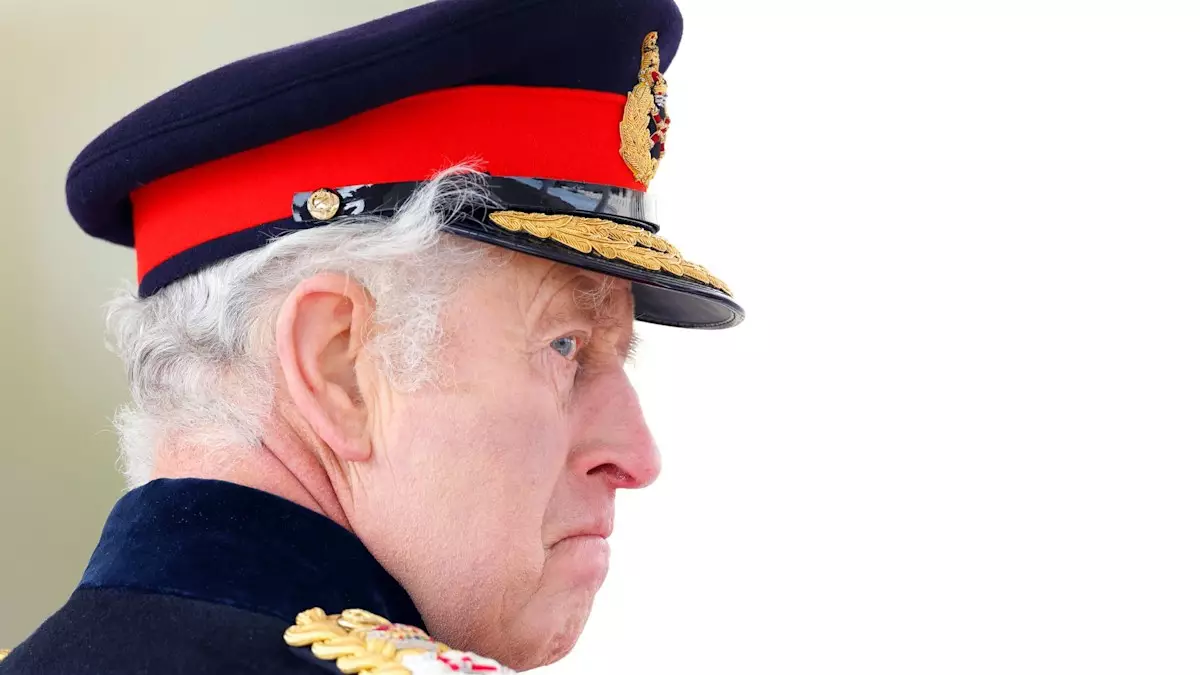King Charles III has recently faced significant changes in his daily routine due to a cancer diagnosis. Historically, the monarch has resisted the midday meal, often skipping lunch altogether to accommodate his demanding schedule. For many, skipping lunch may seem inconsequential, but for a figurehead such as the King, it has become a notable aspect of his personal narrative, closely followed by the public. It echoes the quirks and habits cherished by royal fans, much like Queen Elizabeth II’s beloved corgis, yet this tendency to forgo meals is now under scrutiny as the monarch grapples with his health.
Touted by Clarence House in a quirky list celebrating the King’s 70th birthday, one of the intriguing facts revealed was that he does not eat lunch. However, this habit has been challenged by those around him, including Queen Camilla and his medical team. As he navigates his treatment process, they emphasize the necessity of nutrition to maintain strength and well-being. This marks a pivotal moment where personal choices clash with health imperatives, creating a dichotomy many face in their lives.
The Power of Nutrition in Healing
Despite the King’s reluctance to embrace a full meal, he has found a compromise, often opting for a half avocado at lunch. While perhaps a small step, it highlights the importance of adapting dietary habits in light of serious health challenges. Current medical insights indicate that maintaining a balanced diet is crucial during cancer treatments. According to the NHS, high-quality nutrition aids in sustaining energy levels and bolstering the immune system, which can be severely compromised during treatment.
Research highlights that nutrient-rich diets, comprising an array of proteins, carbohydrates, and vitamins, can indubitably play a role in overall health. While the link between specific foods and cancer regression might not be scientifically robust, the consensus remains that proper nutrition is a cornerstone of effective recovery. This dietary evolution is not just a personal decision for King Charles; it reflects a broader trend where individuals battling health issues reconsider their relationship with food.
Insights into His Culinary Choices
Beyond his newfound approach to lunchtime, King Charles’s eccentricities in food choices offer fascinating glimpses into his personality. One well-known quirk is his fondness for boiled eggs, which have become a symbol of his individual taste preferences. This idiosyncrasy was even immortalized in the Netflix series *The Crown*, highlighting the King’s distinct culinary proclivities.
Furthermore, Tom Parker-Bowles, King Charles’s stepson, recently shared insightful perspectives on the King’s practices regarding food waste. Highlighting efficiency, he noted, “Everything is recycled,” emphasizing a commitment to sustainability in their culinary habits. This speaks not only to the King’s values regarding waste but also hints at a meticulous approach to maintaining a functional kitchen environment amidst their royal lifestyle.
King Charles’s current dietary adaptations serve as a microcosm of the challenges many face in balancing personal habits with health necessities. As he navigates these turbulent waters, his evolving relationship with food might serve as inspiration for others, promoting the significance of nutrition in times of illness. It is a reminder that even those in the highest echelons of society must confront their health with empathy and open-mindedness.

